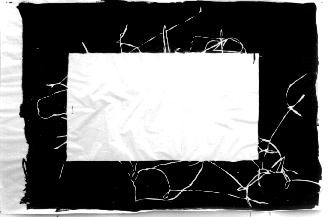For those who have not read the book Empire by Michael Hardt and Antonio Negri, I recommend it, with some exceptions.
You would probably do yourself more of a service by reading Marx's Capital, Volume 1 first. The different interpretation of Marxism that Empire works out will be easier to discern by comparison to Marx's work.
You do not have to read the book from cover to cover. Much like A Thousand Plateaus by Deleuze and Guitarri - which forms its philosophical groundwork - it has no central axiom. Each chapter and passage is not a point in a hierarchical text. Read what you find to be useful.
There are two passages near the end that are both brilliant and inspirational, and here I would like to share them with my readers. There will be an upcoming series of lectures on their work, so keep checking back.
"Certainly, there must be a moment when reappropriation [of wealth from capital] and selforganization [of the multitude] reach a threshold and configure a real event. This is when the political is really affirmed—when the genesis is complete and self-valorization, the cooperative convergence of subjects, and the proletarian management of production become a constituent power. […] We do not have any models to offer for this event. Only the multitude through its practical experimentation will offer the models and determine when and how the possible becomes real."
"There is an ancient legend that might serve to illuminate the future life of communist militancy: that of Saint Francis of Assisi. Consider his work. To denounce the poverty of the multitude he adopted that common condition and discovered there the ontological power of a new society. The communist militant does the same, identifying in the common condition of the multitude its enormous wealth. Francis in opposition to nascent capitalism refused every instrumental discipline, and in opposition to the mortification of the flesh (in poverty and in the constituted order) he posed a joyous life, including all of being and nature, the animals, sister moon, brother sun, the birds of the field, the poor and exploited humans, together against the will of power and corruption. Once again in postmodernity we find ourselves in Francis’s situation, posing against the misery of power the joy of being. This is a revolution that no power will control – because biopower and communism, cooperation and revolution remain together, in love, simplicity, and also innocence. This is the irrepressible lightness and joy of being communist."

No comments:
Post a Comment